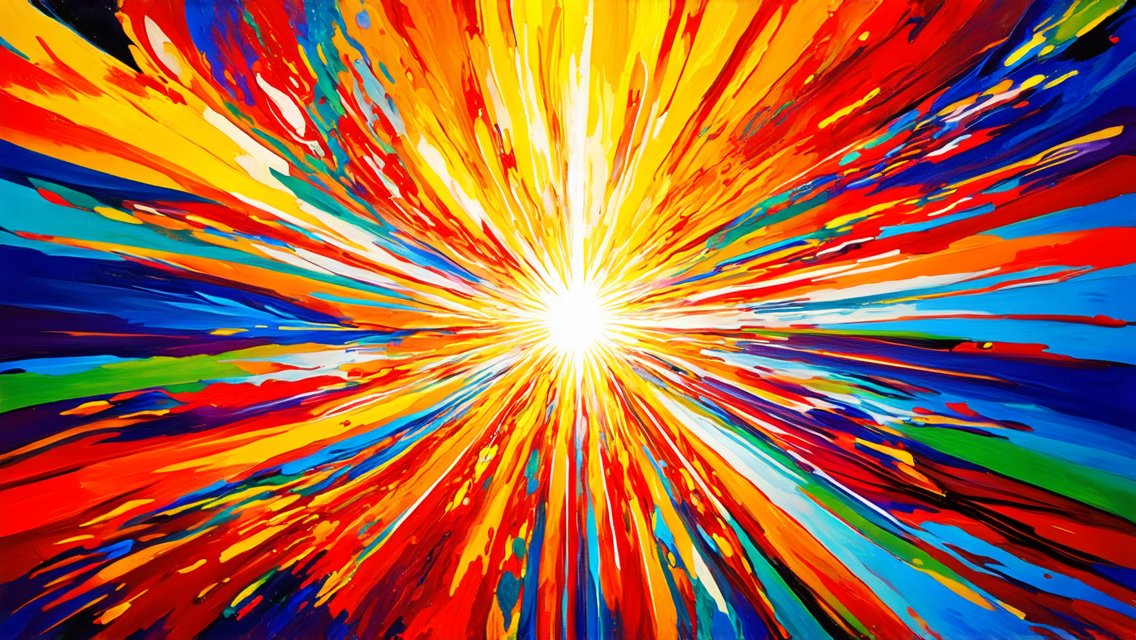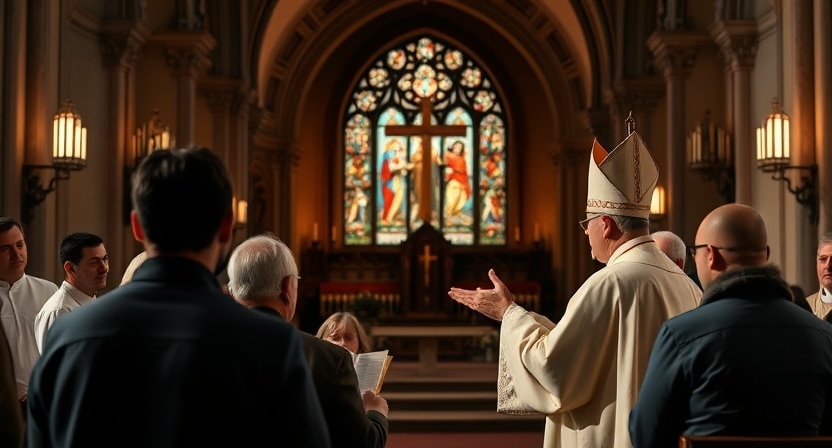SEVENTH SUNDAY OF EASTER
Our need of the Spirit
INTRODUCTION AND CONFITEOR
Today is the Sunday between the Ascension and Pentecost. We are gathered here to do what Christ asked his apostles to do, namely, to wait in prayer for the coming of the Holy Spirit. We can be certain that Mary is with us, as she was with the apostles in the upper room.
We need the grace, power, and love of the Spirit of Jesus. Let us reflect on this briefly. [Pause]
Lord, your Spirit is to us what rain is to a dry, barren land. Lord, have mercy.
Your Spirit is to us what wind is to a sail boat. Christ, have mercy. Your Spirit is to us what warmth is to a cold person. Lord, have mercy.
HEADINGS FOR READINGS
First Reading (Acts 1:12-14). This tells how, after the ascension, the apostles gathered in the upper room, with Mary the mother of Jesus, and waited in prayer for the coming of the Holy Spirit.
Second .Reading (1 Peter 4:13-16). Peter encourages those who suffer because of their faith in Christ.
Gospel (John 17;1-11). This is still part of the farewell discourse of Jesus at the Last Supper. It is really a prayer to the Father. Jesus prays not just for himself, but also for the apostles.
1st Reading – ACTS 1:12-14
12 After Jesus had been taken up to heaven the apostles returned to Jerusalem from the mount that is called Olivet, which is near Jerusalem, within a sabbath day’s journey.

13 When they entered the city they went to the upper room where they were staying, Peter and John and James and Andrew, Philip and Thomas, Bartholomew and Matthew, James son of Alphaeus, Simon the Zealot, and Judas the brother of James.
14 All these were persevering with one mind in prayer with the women, and Mary the mother of Jesus, and with his brothers.
Responsorial Psalm – Psalms 27:1, 4, 7-8
R. (13) I believe that I shall see the good things of the Lord in the land of the living.
or:
R. Alleluia.
1 The LORD is my light and my salvation;
whom should I fear?
The LORD is my life’s refuge;
of whom should I be afraid?
R. I believe that I shall see the good things of the Lord in the land of the living.
or:
R. Alleluia.
4 One thing I ask of the LORD; this I seek:
to dwell in the house of the LORD
all the days of my life,
That I may gaze on the loveliness of the LORD
and contemplate his temple.
R. I believe that I shall see the good things of the Lord in the land of the living.
or:
R. Alleluia.
7 Hear, O Lord, the sound of my call;
have pity on me, and answer me.
8 Of you my heart speaks; you my glance seeks.
R. I believe that I shall see the good things of the Lord in the land of the living.
or:
R. Alleluia.
2nd Reading – 1 Peter 4:13-16
13 Beloved: If you partake of the sufferings of Christ, rejoice that when his glory shall be revealed, you may also be glad with exceeding joy.
14 If you are reproached for the name of Christ, you shall be blessed: for that which is of the honour, glory, and power of God, and that which is his Spirit, rests upon you.
15 But let none of you suffer as a murderer, or a thief, or a railer, or a coveter of other men’s things.
16 But if as a Christian, let him not be ashamed, but let him glorify God in that name.
Alleluia – CF. John 14:18
R. Alleluia, alleluia.
18 I will not leave you orphans, says the Lord.
I will come back to you, and your hearts will rejoice.
R. Alleluia, alleluia.
HOMILY
St Paul says: ‘No one can say, “Jesus is Lord” unless he is under the influence of the Holy Spirit’. (1 Cor 12:3). In other words, we can’t do anything in the spiritual life without the help of the Holy Spirit. We are tempted to protest: ‘This can’t possibly be true. St Paul was exaggerating. We can do lots of things – just watch us! We can win God’s approval, his grace, and our own salvation. All we need is a little will power’. But St Paul was not exaggerating.
We don’t realise, much less acknowledge, our weakness and powerlessness, particularly in the area of the spiritual. All the saints came to acknowledge their weakness. Anyone who has made serious attempts at living a spiritual life will know that without God’s grace they are powerless. We are like inexperienced swimmers who wish to swim out to sea but who are tossed back on the shore again and again by the waves. We need a strength we ourselves do not possess. In this ‘do-it-yourself’ age, this truth will come as a blow to our pride. It is especially in times of difficulty and crisis that we come face to face with our limitations.
Walter Ciszek, a Jesuit priest, spent fifteen years in a labour camp in Siberia. He tells how one day he dramatically came up against his spiritual powerlessness. There had been a revolt in the camp, and troops were sent in. They divided the prisoners into small groups and marched them off. Walter was among a group of thirty to be rounded up. They were herded out of the camp and marched to a sandpit about a mile away. He had no idea what was coming, but then they were lined up and the soldiers took up firing positions, rifles at the ready, waiting only for the command to shoot.
The command was duly given, the rifles raised, cocked at a second command, and leveled at the heads of the prisoners. He says: ‘For a moment, as if in a dream, none of us really understood what was happening. Then with a terrible suddenness we realised that we were looking into gun barrels. One word and we would be blasted into eternity. My stomach turned and I went numb. I stopped breathing. I couldn’t move a muscle in my body. My mind went blank. My heart stopped.
‘The first thought I actually remember thinking was: “Is this the end, Lord?” But another part of me could not understand the words I was mumbling. That other part of me was thinking that in a moment I would stand before God, dumbfounded and unprepared, unable in my confusion and total terror to feel sorry for my sins. I was numbed into absolute inactivity, unable so much as to make a simple act of faith in God. Even today I can still vividly recall that moment, and the fear that gripped me when I realised I was incapable of performing any Christian act to redeem myself. There I was, paralysed and terrified, yet conscious of what I should be doing. All I could manage was to recite some kind of act of contrition but without comprehension or meaning. And yet this was the last moment of life left to me before the veil parted and I was standing before God’.
This is an extreme example but it will help us to understand the effect of Christ’s death on the apostles. When Christ died they were left like sheep without a shepherd. Worse, during the passion they learned a lot about themselves. Before it they thought they were brave, strong, and generous. During it they discovered they were cowardly, weak, and selfish.
But Christ had foreseen all this. He knew well how weak they were, and how desperately they needed strength. That was why he told them to do nothing until they received ‘power from on high’, that is, the Holy Spirit. Only with the help of the Spirit would they be able to witness to him and preach the Gospel. The experience of their own weakness during the passion disposed them to receive the Spirit.
We all get experiences of our own powerlessness and weakness. A sudden illness, or perhaps a brush with death, and we come face to face with our own powerlessness. We find that we are not capable of the simplest prayer. All the saints knew such moments. Far from being moments of damnation, these will become moments of enlightenment and salvation for us. They will convince us, once and for all, of our utter need of the Spirit.
This brings us to the liturgy of these days. Nine days separate the feast of the Ascension from the feast of Pentecost. During those nine days the apostles, with Mary in their midst, assembled in the upper room and made an intense novena of prayer for the coming of the Holy Spirit. This then is the oldest and most important novena in the Church. Unfortunately, it is also the most neglected. This is a great pity, for each Pentecost renews the gift of the Holy Spirit in the Church.
In whatever way we can we must make these days days of prayer. It’s not as if we have never received the Spirit. We have, many times, especially at Baptism and Continuation. But these precious days will help to deepen our consciousness of our need of the Holy Spirit and increase our longing to receive him more completely. Pentecost then will renew his gift in us and in the Church.
‘Only those who have had to face despair are really convinced that they need mercy’. (Thomas Merton).
‘You need a certain dart of inspiration, a ray from on high, things not in ourselves, in order to do beautiful things’. (Van Gogh).
PRAYER OF THE FAITHFUL
Let us pray for the coming of the Holy Spirit as Christ urged his disciples to do. R. Come, Holy Spirit.
For all the people of God: that the Holy Spirit may change their hearts of stone into hearts of flesh. [Pause] Let us pray.
For all those who guide the destiny of nations: that the Holy Spirit may open their ears to the voice of conscience. [Pause] Let us pray.
That the Holy Spirit may mend the hearts of all those broken by disappointment and misfortune. [Pause] Let us pray.
That we may long for the coming of the Holy Spirit so as to follow Christ more closely and do his work more faithfully. [Pause] Let us pray.
For local needs.
Let us pray:
Father, open our minds and hearts to the coming of the Holy Spirit, so that we may be people who are able to bring peace and love, rather than division and hurt to others. We ask this through Christ our Lord.
COMMUNION REFLECTION
I am neither a man of letters nor of science,
but I humbly claim ‘to be a man of prayer.
It is prayer that has saved my life.
Without it I would have lost my reason long ago.
If I did not lose my peace of soul,
in the midst of my many trials,
it is because of the peace that came to me through prayer.
One can live several days without food,
but not without prayer.
Prayer is the key to each morning,
and the belt to each evening.
It is a sacred alliance between God and us.
It delivers us from the clutches of the prince of darkness.
We have to choose either to ally ourselves
with the forces of evil or with the forces of good.
Let everyone try this experience,
and they will find that daily prayer
will add something new to their lives,
something which cannot be found elsewhere.
This is my sacred teaching.
Mahatma Gandhi


